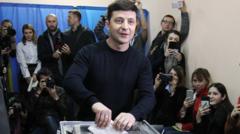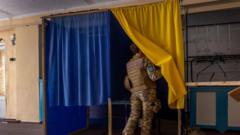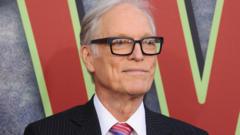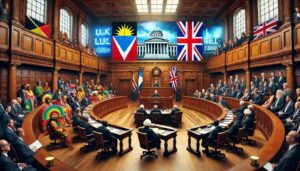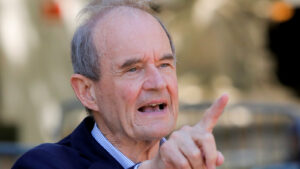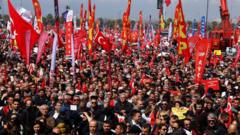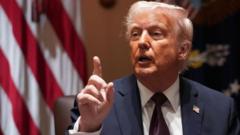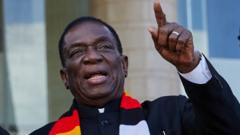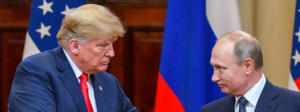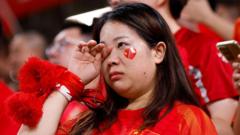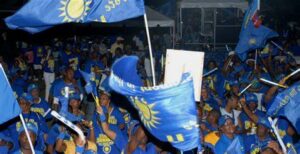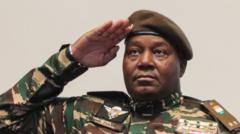After serving as president from 2012 to 2017, John Mahama is campaigning to reclaim the presidency of Ghana. Despite his extensive political background and previous acclaim, critics cite his prior administration's shortcomings, including economic issues and corruption scandals, as reasons for skepticism about his return.
John Mahama Returns: A Second Bid for Ghana's Presidency
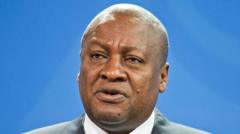
John Mahama Returns: A Second Bid for Ghana's Presidency
Former president John Dramani Mahama launches his campaign for a return to power in Ghana, highlighting his political experience and addressing past controversies.
In his latest campaign, Mahama has positioned himself as the leader who can steer Ghana in the right direction amidst ongoing economic challenges.
---
John Dramani Mahama, once the sitting president of Ghana, has officially re-entered the political arena, aiming for a second term in office. The 65-year-old politician held the presidency from 2012 until 2017 and is revered as one of Ghana's most seasoned politicians, having also occupied roles as a Member of Parliament, minister, and vice president. However, his past is marked by considerable challenges, including an economic downturn and allegations of corruption during his previous tenure.
Mahama's political interest appears to have stemmed from his childhood experiences. His father, a government minister, was imprisoned during a military coup when Mahama was only seven. This early exposure to political strife has informed much of his writing and public persona; his memoir, "My First Coup D'etat," has been praised by notable African authors, including Ngugi wa Thiong'o and Chinua Achebe.
In crafting his manifesto for the upcoming elections, Mahama asserts that Ghana "is headed in the wrong direction" under the current leadership and claims that only he can lead the nation to recovery. However, his critics point to the problems experienced during his prior administration, questioning his capability to fulfill this promise.
Born in 1958 in Damongo, Mahama eventually moved to Accra, where he received a prestigious education at Achimota College, a school known for developing numerous African leaders. His political ascension began in 1996 when he was elected as an MP for the National Democratic Congress (NDC). Mahama quickly gained respect within his party and later served as a vice president before unexpectedly becoming president after the demise of then-President John Atta Mills.
Political observers like Franklin Cudjoe and Dr. Clement Sefa-Nyarko have various views on Mahama’s leadership style. While Cudjoe praises his communication skills, Sefa-Nyarko describes him as a pragmatic leader caught in a political environment that often favors grand promises over practical governance.
Mahama's earlier campaign efforts highlighted his administration's infrastructural achievements; however, he is also remembered for severe economic challenges, including frequent blackouts known locally as "dumsor." Corruption remained a substantial issue during his time in office, further complicating public perception of his leadership.
Despite these past challenges, Mahama remains a dominant figure in Ghanaian politics. After losing to current President Nana Akufo-Addo in the 2016 elections and again in 2020, he has stayed active in opposition politics. Meanwhile, he continues to juggle his political responsibilities with a family life that includes his wife, Lordina, and their seven children.
Beyond politics, Mahama takes pride in his literary contributions, having written for prominent international outlets while drawing inspiration from music legends like Fela Kuti and Michael Jackson. The recent popularity of a song by Ghanaian artist Shatta Wale, referencing Mahama's presidency, has also reinvigorated his campaign messaging as he responds to the public sentiment regarding the current administration's economic struggles.
As Mahama seeks to differentiate his current campaign from previous challenges, he hopes persistent reminders of his political experience and his vision for recovery will resonate with the electorate, positioning him once more as a candidate for Ghana's highest office.
---
John Dramani Mahama, once the sitting president of Ghana, has officially re-entered the political arena, aiming for a second term in office. The 65-year-old politician held the presidency from 2012 until 2017 and is revered as one of Ghana's most seasoned politicians, having also occupied roles as a Member of Parliament, minister, and vice president. However, his past is marked by considerable challenges, including an economic downturn and allegations of corruption during his previous tenure.
Mahama's political interest appears to have stemmed from his childhood experiences. His father, a government minister, was imprisoned during a military coup when Mahama was only seven. This early exposure to political strife has informed much of his writing and public persona; his memoir, "My First Coup D'etat," has been praised by notable African authors, including Ngugi wa Thiong'o and Chinua Achebe.
In crafting his manifesto for the upcoming elections, Mahama asserts that Ghana "is headed in the wrong direction" under the current leadership and claims that only he can lead the nation to recovery. However, his critics point to the problems experienced during his prior administration, questioning his capability to fulfill this promise.
Born in 1958 in Damongo, Mahama eventually moved to Accra, where he received a prestigious education at Achimota College, a school known for developing numerous African leaders. His political ascension began in 1996 when he was elected as an MP for the National Democratic Congress (NDC). Mahama quickly gained respect within his party and later served as a vice president before unexpectedly becoming president after the demise of then-President John Atta Mills.
Political observers like Franklin Cudjoe and Dr. Clement Sefa-Nyarko have various views on Mahama’s leadership style. While Cudjoe praises his communication skills, Sefa-Nyarko describes him as a pragmatic leader caught in a political environment that often favors grand promises over practical governance.
Mahama's earlier campaign efforts highlighted his administration's infrastructural achievements; however, he is also remembered for severe economic challenges, including frequent blackouts known locally as "dumsor." Corruption remained a substantial issue during his time in office, further complicating public perception of his leadership.
Despite these past challenges, Mahama remains a dominant figure in Ghanaian politics. After losing to current President Nana Akufo-Addo in the 2016 elections and again in 2020, he has stayed active in opposition politics. Meanwhile, he continues to juggle his political responsibilities with a family life that includes his wife, Lordina, and their seven children.
Beyond politics, Mahama takes pride in his literary contributions, having written for prominent international outlets while drawing inspiration from music legends like Fela Kuti and Michael Jackson. The recent popularity of a song by Ghanaian artist Shatta Wale, referencing Mahama's presidency, has also reinvigorated his campaign messaging as he responds to the public sentiment regarding the current administration's economic struggles.
As Mahama seeks to differentiate his current campaign from previous challenges, he hopes persistent reminders of his political experience and his vision for recovery will resonate with the electorate, positioning him once more as a candidate for Ghana's highest office.

